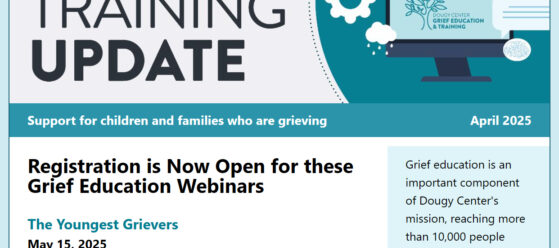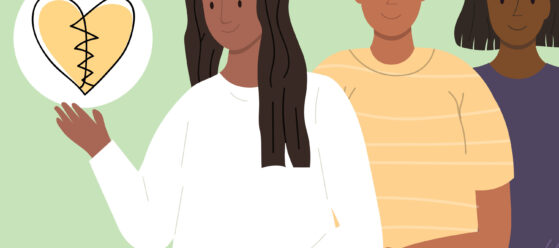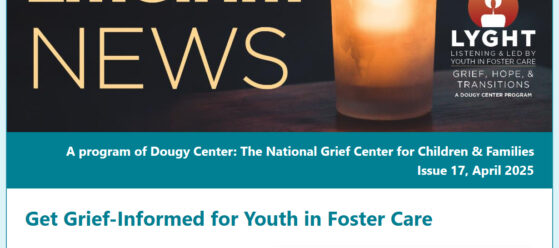A circular hallway connects several playrooms at Dougy Center, the Southeast Portland nonprofit that’s provided support groups for grieving children and families for 40 years. One room houses musical instruments, another a child-size theater. A third features a padded “volcano room,” where children with explosive feelings can punch the walls and jump and throw things safely.
When Braelynn Lucas, 4, walks the loop, she likes to visit the playroom with the sand. “It’s soft,” she says.
Her mother, Brigitte Lucas, says it reminds Braelynn of the beach and building sandcastles with her father, Ethan Lucas, who died from COVID-19 three days before Christmas last year at the age of 30.
Circles are a central theme physically and emotionally at Dougy Center, a beneficiary of The Oregonian/OregonLive’s 2022 Season of Sharing holiday fundraising campaign.
Brennan Wood leads the staff of 27 as executive director, but when she first entered the center 35 years ago, she was a 12-year-old girl grieving the loss of her own mother. Adults in her life wanted to erase her pain, she said. Although well intentioned, they said things that denied her feelings such as, “Your mom wouldn’t want you to feel sad.”
“The outside world wants you to forget, to move on, because it’s hard for them; it’s not helpful to you,” said Wood, who’s worked at the center for 18 years, first as a receptionist. “Dougy Center gives kids and families the opportunity to experience what they’re going through in their own time, in their own way.”
Today, children as young as 3 gather in circles inside circular rooms and offer support to each other directly. These peer-to-peer sessions include trained facilitators who are among the center’s hundreds of volunteers, but it’s what children say to each other that transforms the experience.
Wood offered an example. A 3-year-old boy once said in these free, every-other-week sessions, “My daddy died, and I want him to come back.” A 4-year-old boy replied: “My daddy died too, and when daddies die, they don’t come back.” The slightly older boy then moved across the room, sat next to the 3-year-old and cried with him.
Braelynn, who has a 1-year-old sister named Blaykley, has found similar support at Dougy Center from another girl her age who also lost a father. He died from a heart attack with COVID-19. They are three of the estimated 250,000 children in the United States who lost a parent or primary caregiver in the pandemic, according to research from JAMA Pediatrics.
The idea that adults shouldn’t shield children from conversations about death comes from founder Beverly Chappell, a former nurse who died Sept. 30 in Bend at the age of 92.
In 1981, Chappell met 13-year-old Dougy Turno, who was seeking treatment at Oregon Health and Science University for an inoperable brain tumor. Turno also had questions, and Chappell witnessed the powerful healing effect when he and other children talked openly about death. She wanted more kids to have that experience, said Donna Schuurman, the nonprofit’s former executive director.
“She was a rebel,” said Schuurman. “It wasn’t how the system worked back then, and she saw that wasn’t helpful to the kids and the parents.”
The experience with Turno led Chappell and her pediatrician husband, Dr. Allan Chappell, to open their Southeast Portland home to its first support group. In 1982, it was just four boys who’d each lost a father.
The center has expanded considerably since then. It operates on a $2.2 million annual budget that relies entirely on donations from private foundations, individuals and corporations. Services are free to families, many of whom experience financial instability when a family member dies, and aren’t billed to insurance.
The center puts no limit on how long families may attend grief support groups. Some sessions are in Spanish. The nonprofit also offers programs to help families facing advanced serious illness, answers tens of thousands of phone calls from families with questions about death and shares free resources about grief on its website, dougy.org.
The charity now occupies a 10,000-square-foot property in the Creston-Kenilworth neighborhood of Southeast Portland, and hosts sessions at a Beaverton satellite and a Canby location. But its reach extends to eastern Oregon, where the independent Pendleton nonprofit Cason’s Place offers services inspired by Dougy Center, and beyond. Leaders with the Portland nonprofit have conducted trainings in Asia, Europe and Africa, spinning the circle ever wider.
Dougy Center paused in-person sessions amid the pandemic, returning to them in October 2021. The waitlist grew 400% in that time; it’s now about 100 people, said Kassie Boehringer, director of marketing. Braelynn and her mom waited about a month after getting a referral from their pediatrician. While Braelynn attends a support group for kids, her mom attends one for parents and caregivers.
Ethan Lucas’s death came suddenly last December.
He tested positive for COVID-19 on a Friday. Doctors administered monoclonal antibody therapy on a Saturday. On Sunday and Monday, he felt like himself again, his wife said.
But on Tuesday, Dec. 21, around 3 a.m., that changed. Later that morning, his blood-oxygen level registered at 48%. “That’s an ambulance ride, right?” Brigitte Lucas asked her mother.
He died at a hospital Dec. 22 at 5:40 a.m. “My world crashed,” said Lucas.
A year later, Dougy Center helps Braelynn and Blaykley celebrate their dad, who grew up in Hood River and owned a small Northeast Portland auto shop.
It’s helped Brigitte Lucas, 32, expand her circle of support, too.
“They help you find a light in your dark times,” said Lucas. “The love and support you get is unlike anywhere else.”
What your donation can do
- $50: Provides paint, colored pencils, paper and canvases for Dougy Center’s art room where children and teens can express their grief.
- $100: Pays for printed books such as Dougy Center’s “Deconstruction/Reconstruction Journal for Teens” at no cost to families in need of support.
- $150: Provides orientation packets and resources for 10 families who are seeking placement in Dougy Center’s Peer Grief Support Groups.



